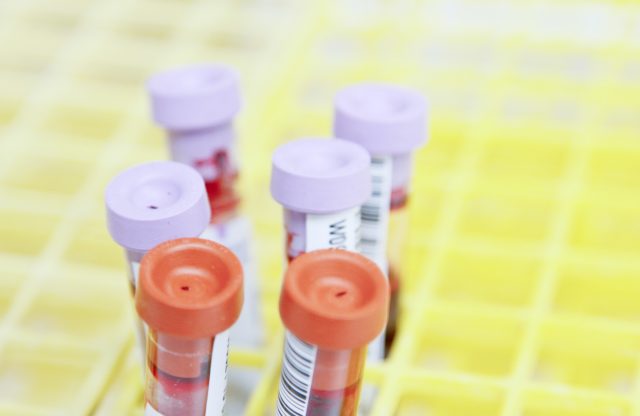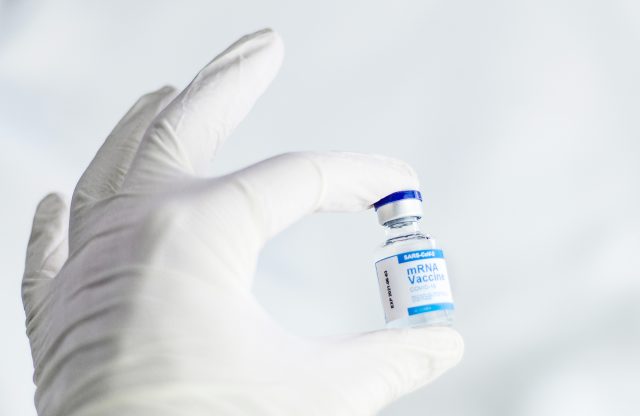The SARS-CoV-2 T-Cell immunity analysis is to be integrated into our Covid-19 Immunization Program

Dr Robert Hess – 07/09/2021
The SARS-CoV-2 T-Cell immunity analysis is to be integrated into our Covid-19 Immunization Program for clients with immediate effect.
So far, we have been testing only one of the two immunity pillars, namely antibody production. In addition to checking the full range of antibodies, Dr Robert Hess goes far beyond the generally applied classification to differentiate between the neutralizing antibodies and identify efficacy classes – low, medium and high – plus ADE antibodies which may even have the undesired effect of amplifying an infection. From now on, we will also be measuring the second Covid-19 immune pillar – namely T cell immunity – in great detail. For this purpose, we have upgraded our Covid-19 Immunization Program with the inclusion of the new SARS-CoV-2 T-Cell immunity analysis.
This supplementary CE-certified blood test facilitates the cellular immunological detection of a SARS-CoV-2 infection. Protection against Covid-19 afforded by vaccination is also shown in detail. It works by testing specific cellular immunity after a SARS-CoV-2 infection, as well as detecting immune reactivity against endemic coronaviruses, also referred to as background immunity.
The importance of the cellular immune response is as follows: an infection with or a vaccination against the SARS-CoV-2 virus should result in an activation of the adaptive immune system. Alongside the production by B lymphocytes of virus-specific antibodies, the stimulation and multiplication (clonal expansion) of virus-specific T lymphocytes is a central feature of this immune response. In the course of the acute immune response, the T lymphocytes first differentiate into effector T cells, which are actively involved in the elimination of virus-infected cells (CD8 killer T cells) and in controlling the function of other immune cells (CD4 T helper cells). The effector T cells are detectable as early as 10 to 14 days after infection or vaccination or after the onset of symptoms.
In the later stage of infection and after an individual has survived Covid 19 or alternatively been vaccinated against the disease, memory T cells should form and persist in the body, theoretically ensuring the maintenance of immune protection in the case of reinfection. If an individual is then exposed to the virus, the memory T cells can instantly trigger efficiently organized immune responses. In a coordinated response with neutralizing antibodies also present in the blood, the virus should then be rapidly repelled. Consequently, the detection of SARS-CoV-2-specific T cells is of particular importance with regard to the further spread of the virus and potential infection or reinfection.
Immunological diagnostics is a highly specialized field. The analysis of virus-specific T-cells in the context of routine laboratory diagnostics is no trivial matter due to the complex activation modality of these cells. Because T-cells are present in the blood only in low frequency or numbers, highly sensitive procedures are required for their detection.
The ELISPOT method, on which our SARS-CoV-2 T-Cell immunity test is based, provides a sensitive and specific analysis of T cells in the blood samples submitted by our clients. This cell culture test is based on the release of messenger substances from the immune system (cytokines) by single cells after stimulation of lymphocytes with virus fragments (peptides).
The fluorescence-based version of the ELISPOT method used for this test allows for the simultaneous detection of two different cytokines – interferon-y (IFN-y) and interleukin-2 (IL-2). While the production of IFN-y is characteristic of effector T cells, IL-2 is primarily secreted by activated memory T cells.
The ratio of T cells detected – active (IFN-y producing effector T cells) compared with residual (IL-2 producing memory T cells) – indicates the status of the T cell response and thus the current status of potential SARS-CoV-2 T cell immunity:
The confirmation by this cell function test of prior Covid-19 immunization succeeds significantly more often than with the serological determination of antibodies, as SARS-CoV-2-specific antibodies are not always detectable even with a PCR test following an infection. This is equally true in the case of an asymptomatic SARS-CoV-2 infection.
Two different peptide pools are used to stimulate the lymphocytes in this test. A positive T-cell indication after culture with the SARS-CoV-2 specific peptide mix is not only to be regarded as proof of a previous viral contact; with our current state of scientific knowledge, it can also be assumed that there is an existing cellular immunity, which gives the affected individual at least temporary immune protection. This is especially applicable in cases where IL-2-producing memory T cells are found in this test.
In addition, several studies have demonstrated the existence of cross-reactive memory T cells in Covid-19 patients and non-exported individuals which are derived from the immune response following infection with one of the endemic coronaviruses (HCoV-NL63, -229E, -OC43, -HKU1) related to the SARS-CoV-2 virus. Current thinking is that the presence of these T lymphocytes, which can be activated upon either infection with or vaccination against SARS-CoV-2, confers background immunity. This results in affected individuals becoming only mildly ill or not at all after infection or vaccination against SARS-CoV-2. To estimate the extent of such a putative cellular basic immunity, which is carried by the above-mentioned cross-reactive T cells, our test includes a stimulation of the lymphocytes with a PAN-corona peptide mix specific to the endemic coronaviruses.
Within the framework of our laboratory diagnostics for the Covid-19 Immunization Program, this new test is now available as an innovative cell function test that usefully supplements acute diagnostics by means of SARS-CoV-2 PCR (direct virus detection) as well as serological diagnostics with the detection of SARS-CoV-2-specific antibodies (IgG, IgM).
This analysis is to be introduced as standard in our Covid-19 Immunization Program for our Premium clients with immediate effect.

